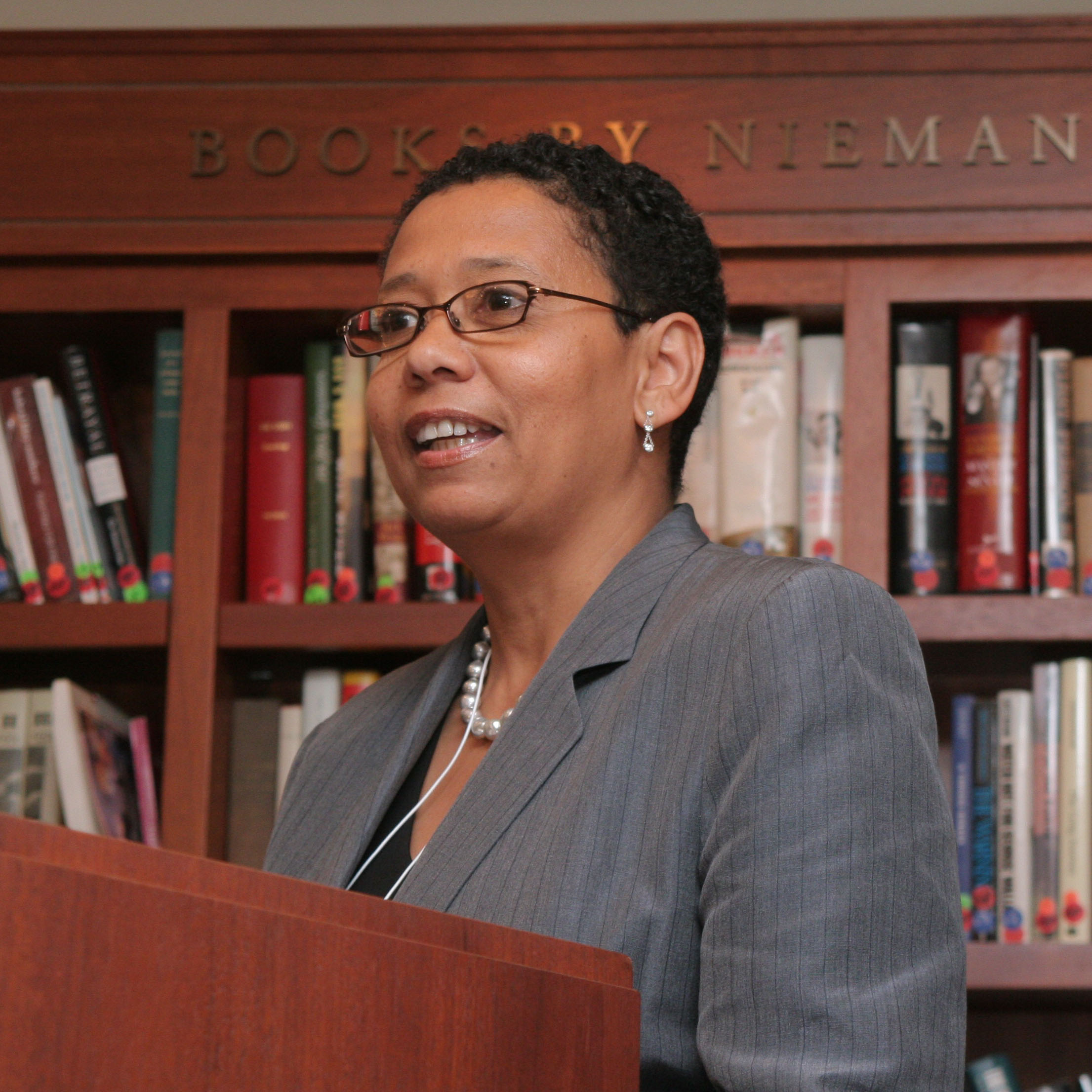
Dori J. Maynard speaking at the Nieman Foundation in 2006
Dori J. Maynard, a 1993 Nieman Fellow and president of the Robert C. Maynard Institute for Journalism Education who was a longtime advocate for improving newsroom diversity, died February 24th at her home in West Oakland, California, from complications of lung cancer. She was 56.
Dori took over as president of the Institute in 2002 after a career in journalism at the Detroit Free Press, the Bakersfield Californian, and The Patriot Ledger in Quincy, Massachusetts. Under her leadership, the institute offered for close to 10 years an annual management training program at the Nieman Foundation. The goal was to train the next generation of news executives of color.
Mary C. Curtis, a 2006 Nieman Fellow and longtime friend of Dori’s, shares her memories:
It’s hard to imagine the world without Dori Maynard in it. She leaves an incredible legacy and has touched so many. You can hear it in the many tributes greeting the news of her death. How did she manage to do so much in 56 years? How could she be so many places, making speeches and driving home the point that journalism and life demand all voices in order to work in any accurate and meaningful way—and then offering wise counsel and a sympathetic ear in a late-night phone call to a friend?
Last year, when we both happened to be in New York on business, we met for brunch and—since it was a beautiful day—walked and walked and talked and talked. I will carry that day with me now. She was sweet, kind, funny and fierce. And even when her message was serious she made it with such clarity and charm that everyone got it.
That day, we talked a lot about the intersection of race and gender when it comes to equality efforts and journalism, and the need for all sides to listen and consider different points of view—even those who believe they are allies. Dori knew that newsrooms are tough places to change. Journalists, known for investigating the hypocrisy of others, shy away from examining their own blind spots. Crusaders can’t admit their culture might not be the most welcoming one; good intentions aren’t always enough.
I was supposed to work with her on a panel on intersectionality at the Journalism and Women Symposium (JAWS) conference planned for Palm Springs, California, an appearance she would eventually have to cancel. We were both devoted to JAWS—she was on the advisory board and I was a former board member—but we had our occasional disagreement with the group, often over that issue. After I had had one of those clashes, characterized by increasingly contentious exchanges on group email, I got a Dori call. She didn’t just comfort me. She had a plan, of course; she always had a plan. That panel was part of it. Dori was there when needed, and not only through her leadership of the Maynard Institute for Journalism Education. She provided support and sometimes just that shoulder.
On that beautiful New York day last year, Dori and I also talked about the funding challenges the institute faced through a recession, when diversity efforts took a back seat to budget. We talked about the need for diversity being more important than ever and about our challenges, both personal and professional. I had no doubt that she would prevail. I was not surprised to learn, from the institute’s announcement, that “on the morning of her death, she was discussing plans with a board member to help the institute thrive and to attract funding to support that work.”
And as I read through the tributes from those she had mentored, taught, chided and changed, I realized she left behind a legion to channel her spirit and continue her work.
